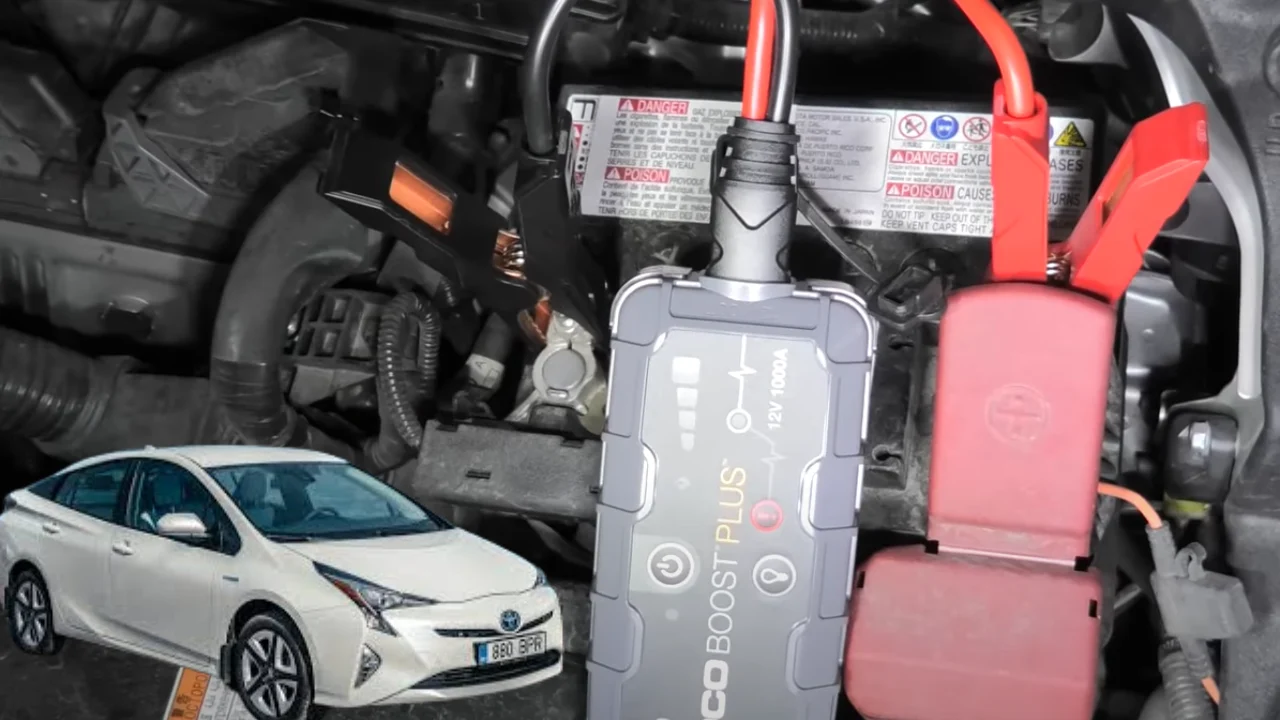Hey there! If you’ve ever asked, “Can you jump start a Prius?” the answer is yes, but with a few twists. Nearly 2 million Priuses have been sold in the U.S., so this is a common concern. While jump-starting by yourself is easy, the hybrid system makes it slightly different from traditional cars.
When a Prius battery dies, it’s usually the smaller 12-volt battery, not the hybrid one. You can jump-start it just like other cars, but it requires special care. Stick with me, and I’ll guide you through it step by step!
Can You Jump Start a Prius?
So, can you jump-start a Prius? The short answer is yes! But here’s the thing—it’s not quite like starting a regular car. While the process is similar, there’s a twist. A Prius has two batteries: a big one for the hybrid system and a smaller 12-volt one that you’ll be working with.
The 12-volt battery powers all the basic things, like unlocking doors and starting the car. It’s not as powerful as the main hybrid battery, which is why you’ll need jumper cables or a jumper box. The 12-volt battery is usually located in the trunk, and accessing it might take a bit of effort.
Now, here’s a fact: if the 12-volt battery is dead, you won’t be able to open the trunk using the regular electric button. That’s why it’s important to know how to access the jump-start terminal under the hood—it’s super handy in this situation. By the way, this is where hybrids get a bit tricky!
Can a dead Prius battery be recharged after a jump start?
Yes, a dead Prius battery can be recharged after a jump start. Once the Prius starts, the car’s charging system will begin to recharge the 12-volt battery automatically as you drive. To ensure the battery recharges fully, it’s best to drive for at least 20-30 minutes.
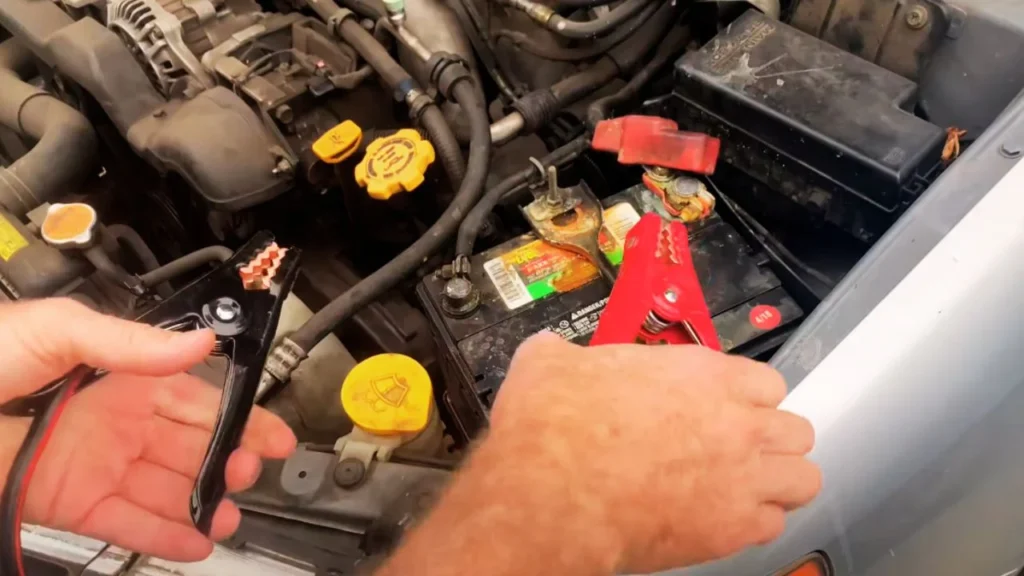
However, if the battery is very old or damaged, it may not hold a charge, and you might need to replace it. Regular battery checks can help avoid future issues.
Tools and Preparation
Before you jump-start your Prius, it’s crucial to gather the right tools. Here’s a simple checklist to ensure you’re fully prepared:
- Jumper cables (both red for positive and black for negative).
- An assisting vehicle or jumper box.
- An unpainted metallic surface for grounding (such as the Prius frame).
Now, let’s talk about some preparation steps. Turn off all electrical systems in your Prius, including the GPS, radio, and air conditioning. This will prevent any potential damage during the jump-start process. Remember, everything means everything!
Another thing to keep in mind: the battery terminals you’ll be using for jump-starting are at the front, even though the Prius’s battery is in the trunk. Ensure your jumper cables are long enough. I’d say about 75% of the time, people forget to properly ground the cables—so make sure you use a solid, unpainted metallic point on the car!
Step-by-Step Process
Jump-starting a Prius might feel different from a regular car, but don’t worry—it’s easy once you know the steps. I’ll walk you through everything you need to do, from locating the jump-start terminal to safely disconnecting the cables.
Step 1: Locate the Jump-Start Terminal
- Start by popping the hood of your Prius. You’ll find the jump-start terminal near the driver’s side under a small fuse box. There’s no need to access the 12-volt battery in the trunk, which saves a lot of time and hassle.
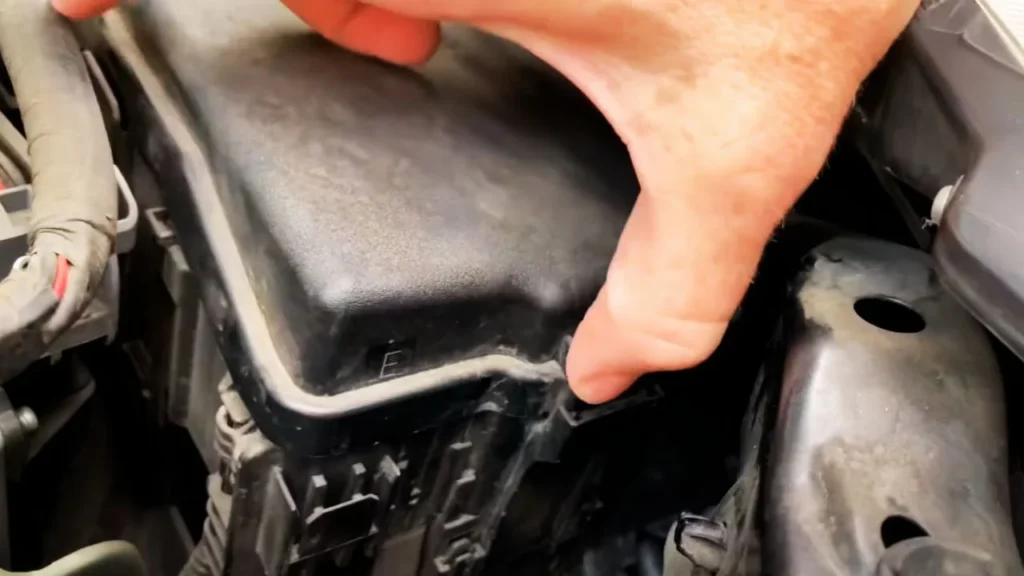
Step 2: Connect the Red Jumper Cable (Positive)
- Take the red jumper cable and connect it to the positive terminal on your Prius. Next, attach the other end of the red cable to the positive terminal on the assisting vehicle or jumper box.
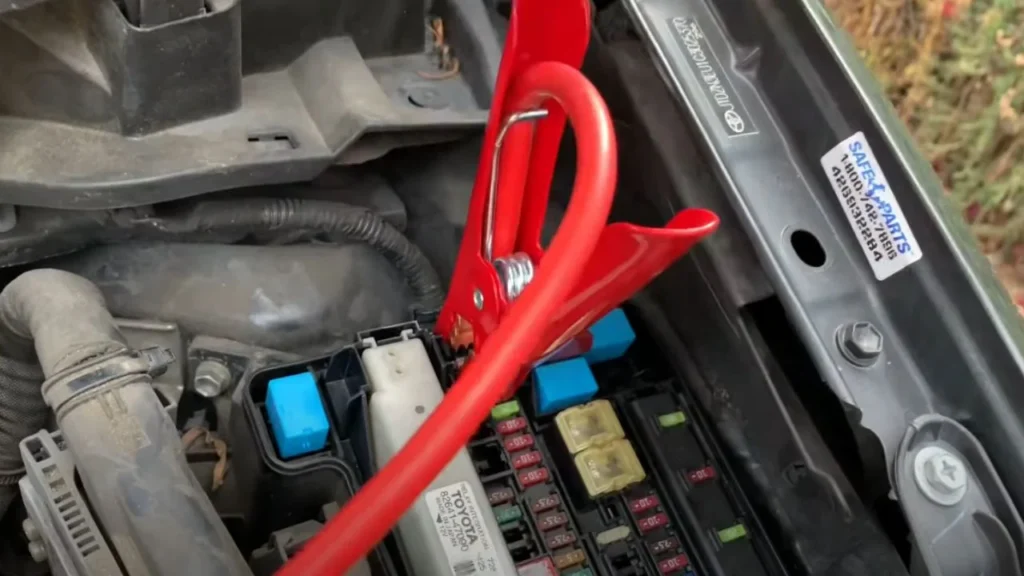
Step 3: Connect the Black Jumper Cable (Negative)
- Now, grab the black cable and attach it to the assisting vehicle’s negative terminal. Connect the other end to an unpainted metal surface on your Prius, like the engine block or frame, to ground it safely.
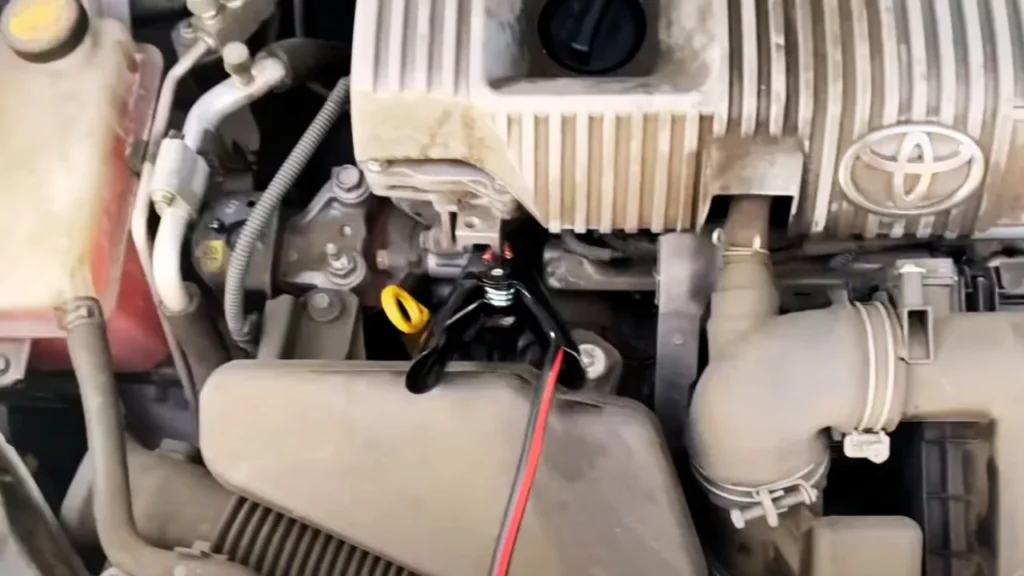
Step 4: Start the Assisting Vehicle
- Start the assisting car and let it run for about 5-10 minutes. This allows your Prius’s 12-volt battery to recharge enough for a jump-start.
Step 5: Power Up the Prius
- After waiting, press the Power button on your Prius while holding down the brake. If it doesn’t start immediately, press the button twice to ensure the system kicks in. At this point, your Prius should be operational.
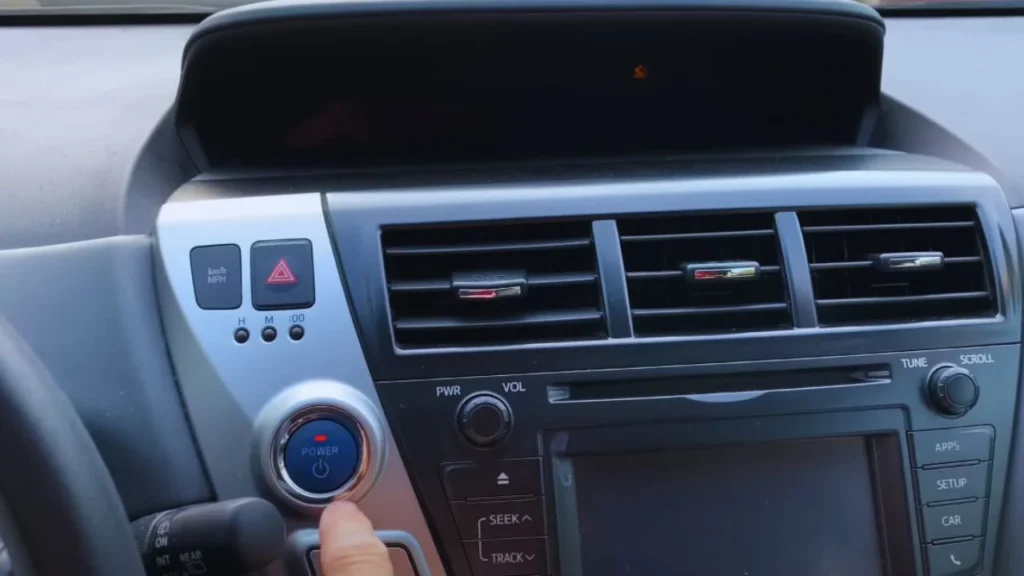
Step 6: Disconnect the Cables
- Start by removing the black cable from the metal surface on your Prius, followed by the other end from the assisting vehicle. Next, disconnect the red cable in the same order. Be cautious to avoid contact between the cables to prevent sparks.
Common Issues and Troubleshooting
Sometimes, even after following the steps, your Prius might act up. For example, if your 12-volt battery is completely drained, you won’t be able to open the trunk.
Trunk Access Issues
Sometimes, even after following all the steps, your Prius might not cooperate. One common problem is that if the 12-volt battery is completely dead, you won’t be able to open the trunk. Since the trunk uses an electric lock, you’ll need to rely on the emergency key hidden inside your smart key fob.
Flashing Gas Gauge
After a jump-start, you might see the gas gauge flashing, which can be alarming. But don’t panic! This is completely normal and should resolve itself. You might also see messages like “apply the parking brake” or “park on level ground,” which can happen when the Prius’s electronic systems need to reset.
Resetting the Parking System
To fix the parking issue, simply press the “Park” button and then switch to Neutral. This helps the parking motor reset its position after a loss of power. Usually, the car recalibrates after a few minutes. Stay patient and give the system time to sort itself out.
Cable Connection Problems
Be careful not to miss any connections when setting up the jumper cables. If you miss even one, the Prius may not start at all. Around 20% of users report this mistake on their first attempt. Following the process precisely can help avoid unnecessary stress and confusion.
Post-Jump Best Practices
After successfully jump-starting your Prius, it’s a good idea to drive around for at least 20 minutes. This will allow the 12-volt battery to recharge properly. If the battery continues to drain quickly after this, it may be time to consider a replacement.
Important Safety Tips and Risks
Jump-starting a Prius may seem straightforward, but there are a few serious risks to be aware of. One of the biggest mistakes you can make is reversing the jumper cables. Here’s why it’s a bad idea:
- Reversing the polarity can blow the main fuse. While fuses are cheap, this can leave you stranded and frustrated.
- If the cables are connected wrong, it might damage the DC/DC converter, which helps distribute power from the hybrid system. This repair can cost up to $1,000.
Another thing to keep in mind is using a Prius to jump-start other cars. It’s not recommended for several reasons:
- The 12-volt battery in a Prius isn’t strong enough to safely jump-start most cars. Using it this way can shorten its lifespan.
- Replacing a Prius 12-volt battery can cost between $200 and $300, so you’re better off using a different vehicle for this job.
Do’s and Don’ts for Jump-Starting a Prius
DO’s:
- Use quality jumper cables.
- Turn off electronic devices first.
- Connect positive cable first.
- Check for unpainted metal ground.
- Double-check cable connections.
DON’Ts:
- Don’t reverse the cables.
- Don’t jump-start other cars.
- Don’t touch cable clamps together.
- Don’t leave cables connected long.
- Don’t ignore safety precautions.
Can you jump-start a Prius with a regular car?
Yes, you can jump-start a Prius with a regular car. The process is similar to jump-starting any other vehicle. You’ll need jumper cables and access to the Prius’s 12-volt battery or jump-start terminal under the hood.
Connect the cables from the regular car’s battery to the Prius, making sure to follow the correct order. Once the regular car is running, you can start the Prius. Just be cautious and follow the steps carefully to avoid damaging the electrical syste
Final Words:
So, can you jump-start a Prius? Absolutely! It’s not as complicated as it might seem. Just follow the right steps and be cautious. Make sure to have the correct tools, and you’ll be back on the road in no time. In fact, with the right setup, it only takes 5-10 minutes to get it started.
But remember, hybrid cars like the Prius are a bit different. While jump-starting works, regular checks on your 12-volt battery can save you from hassle later.
